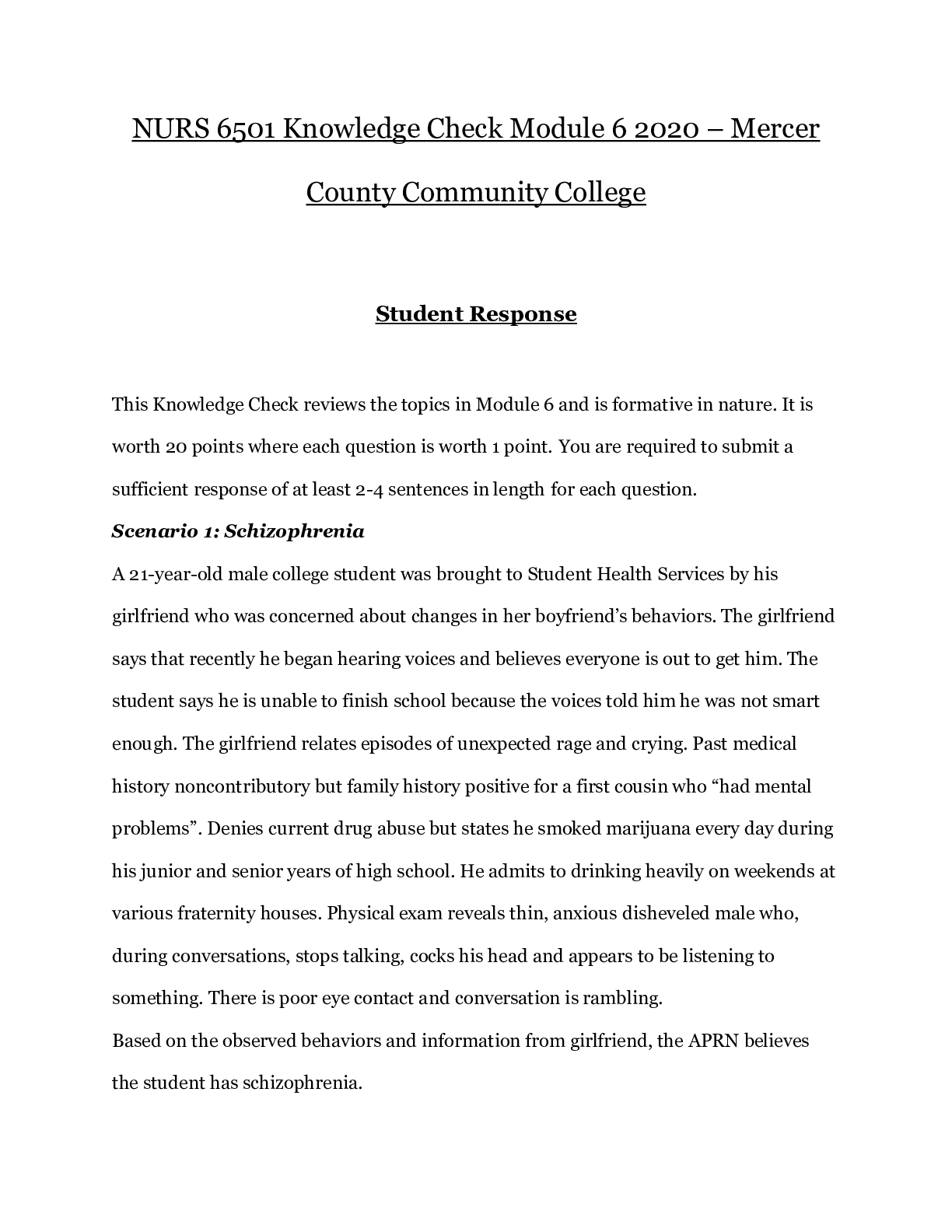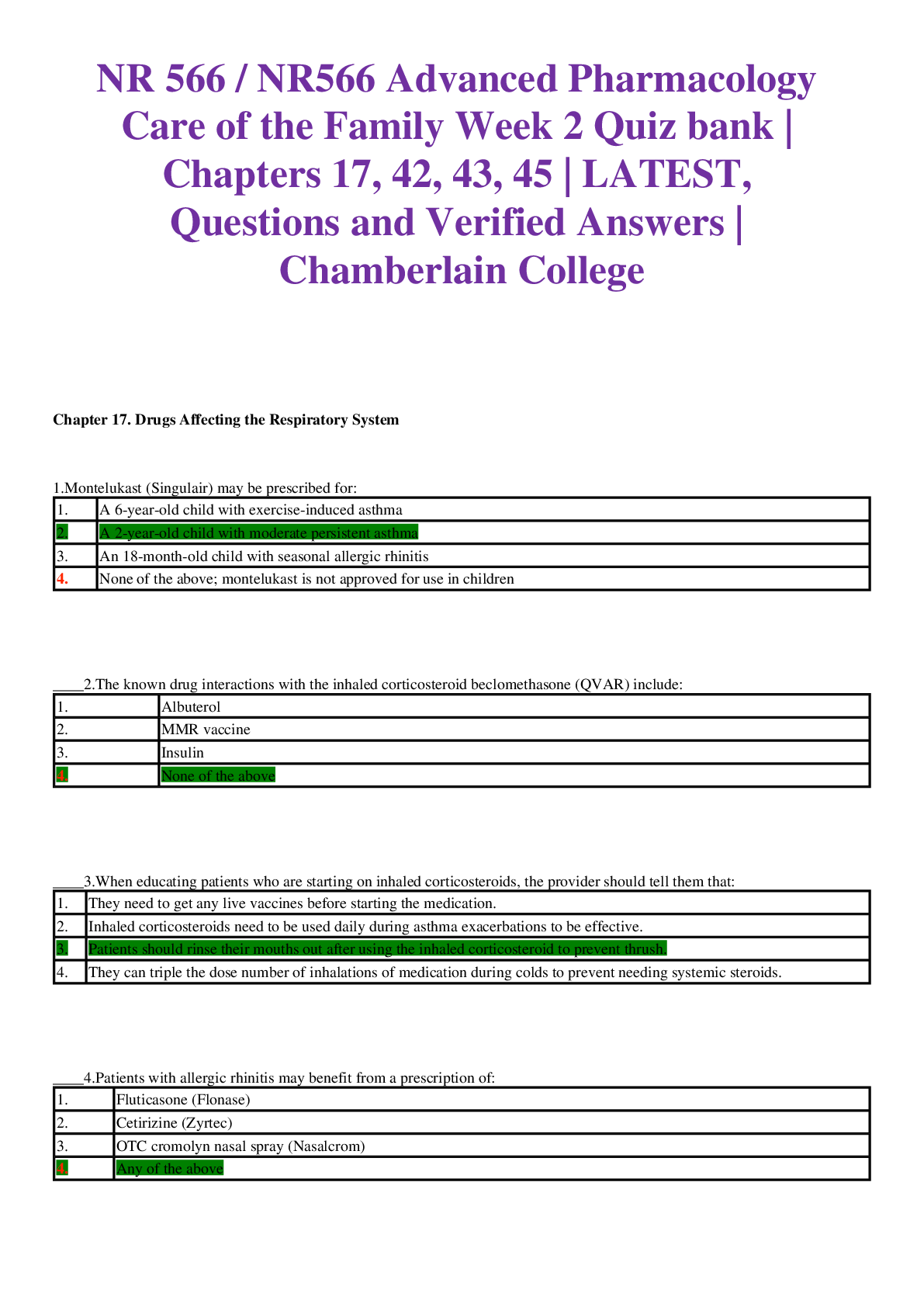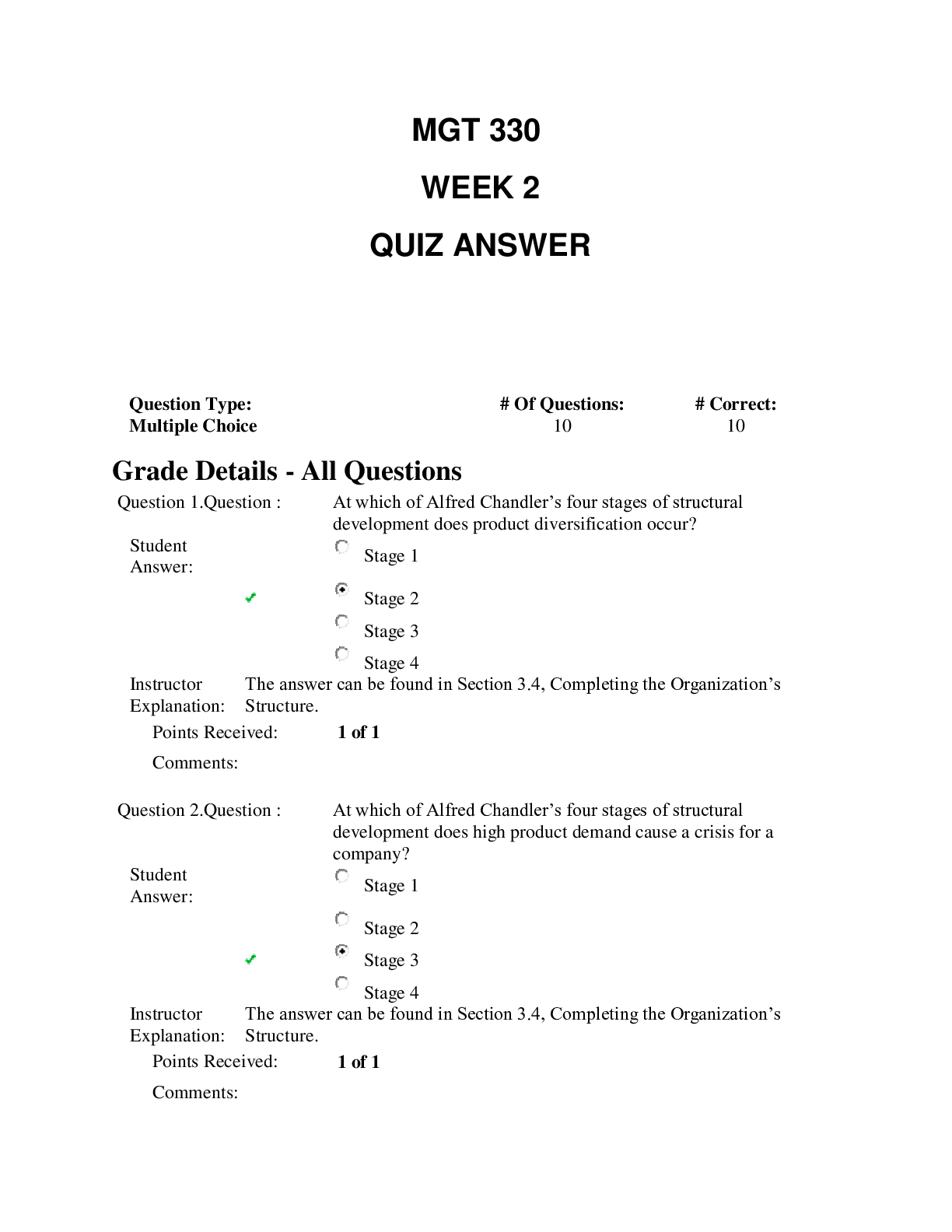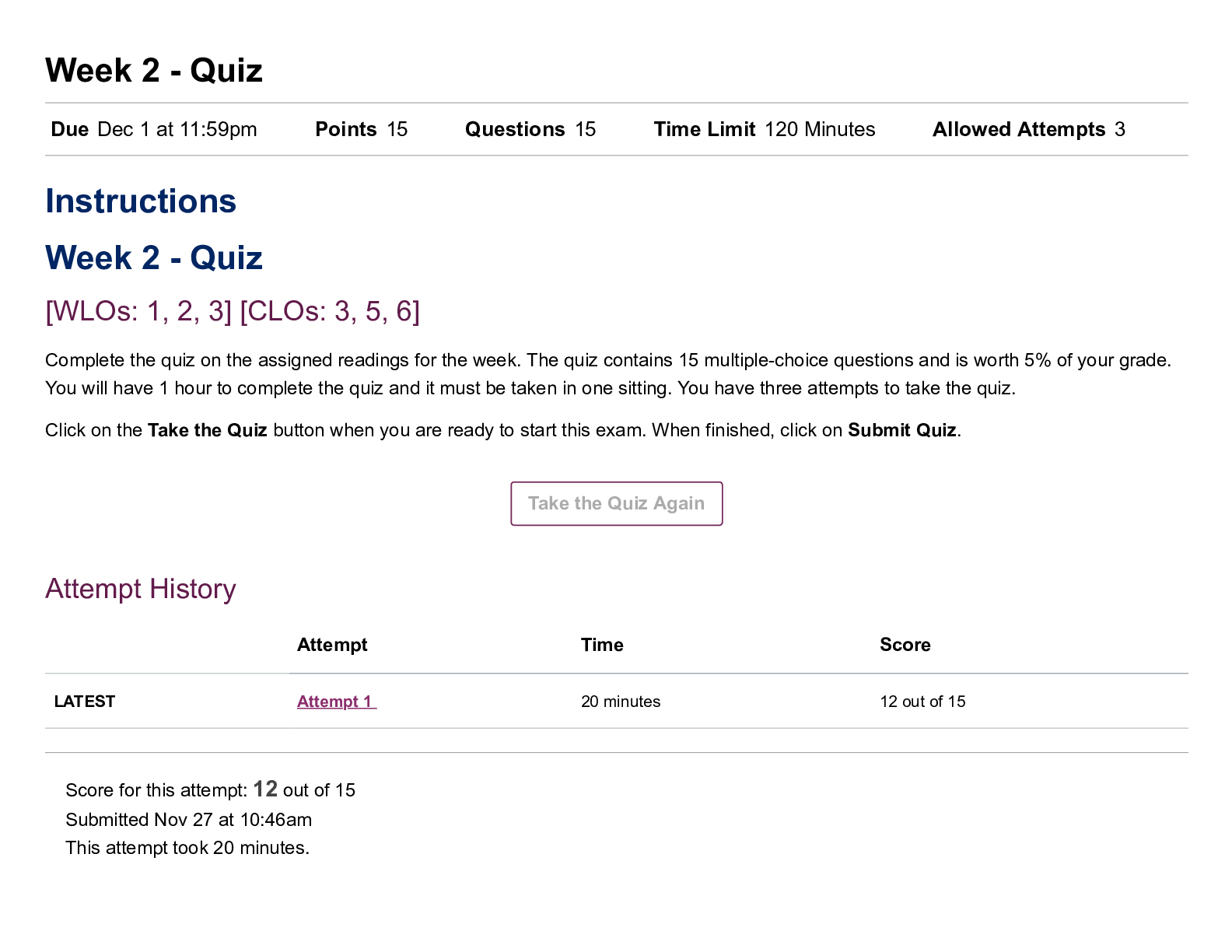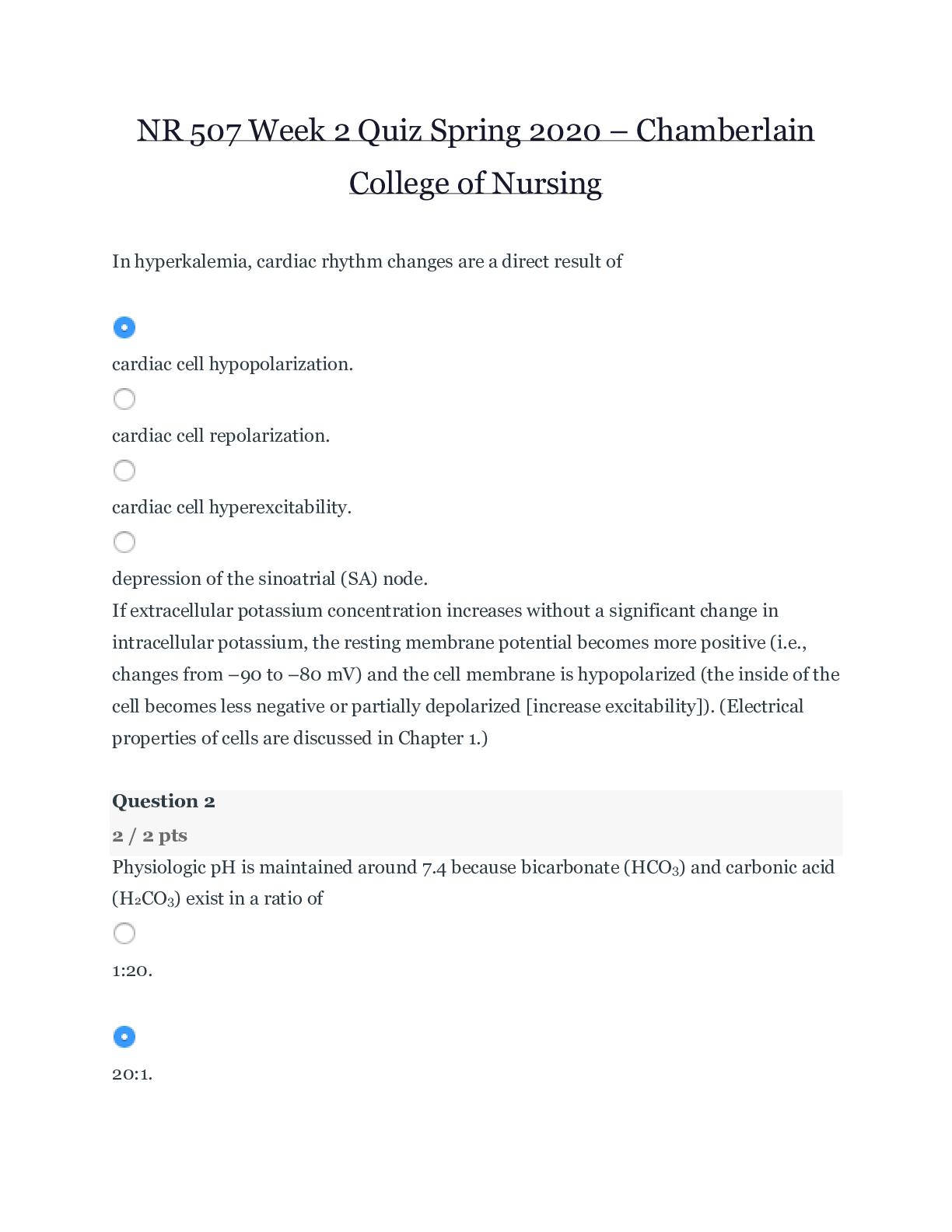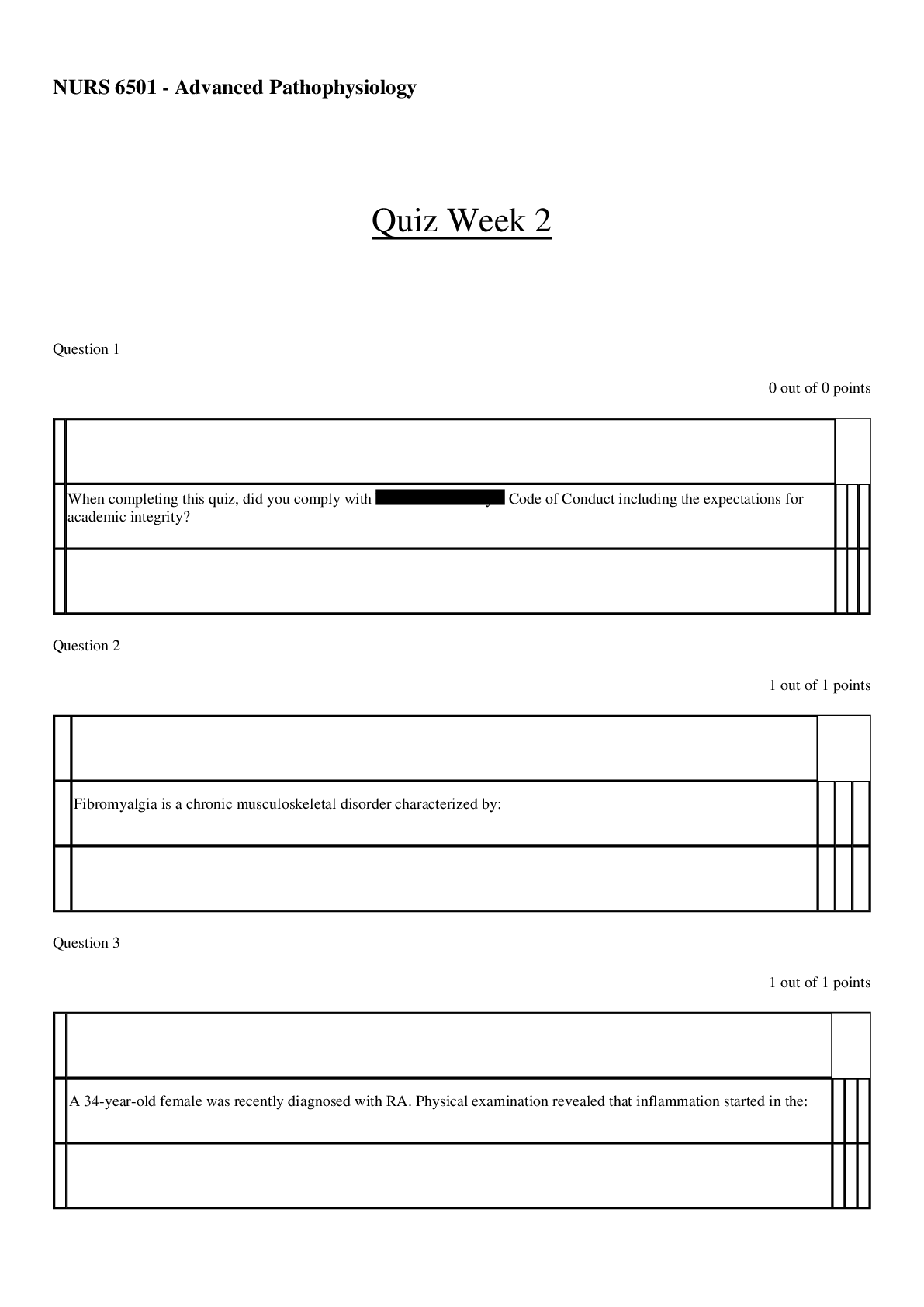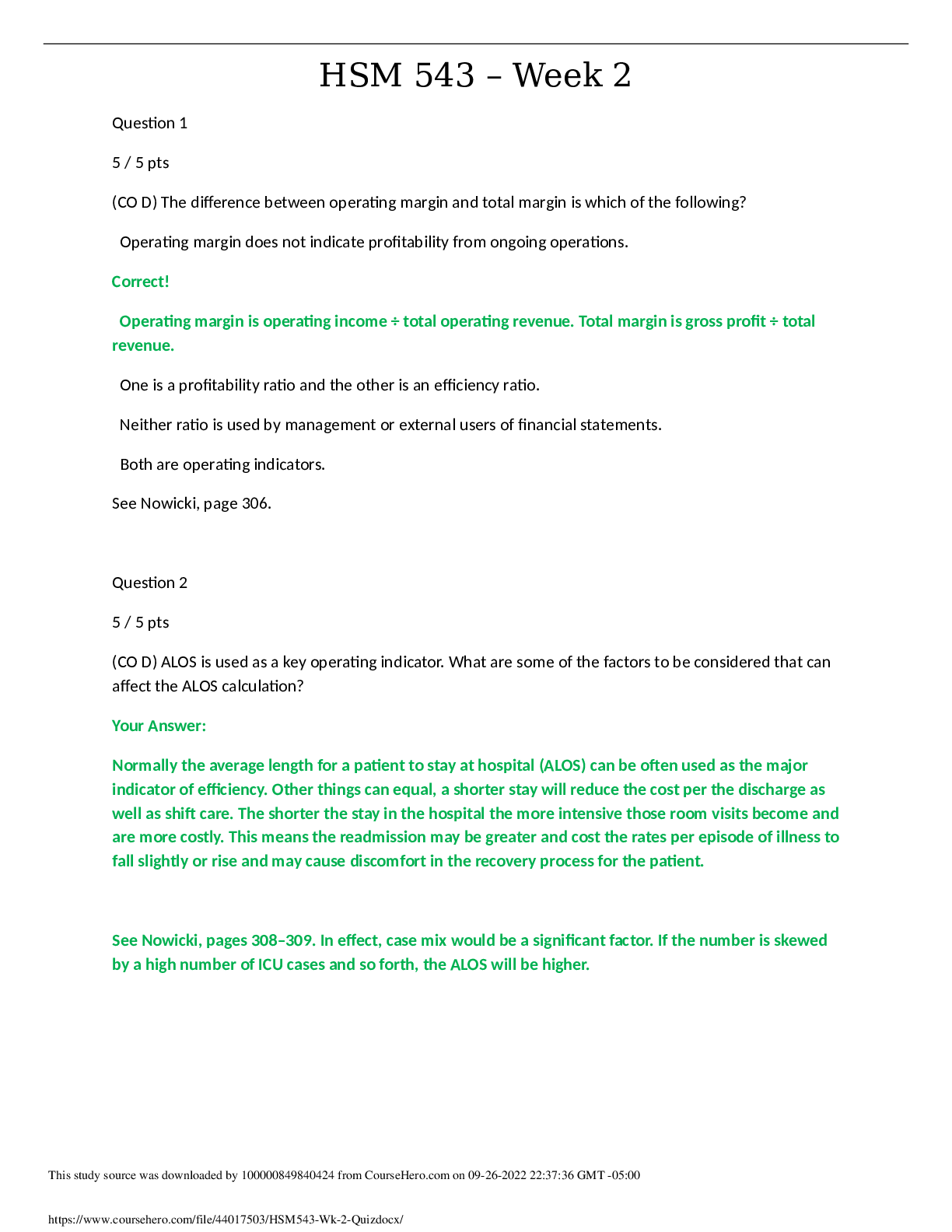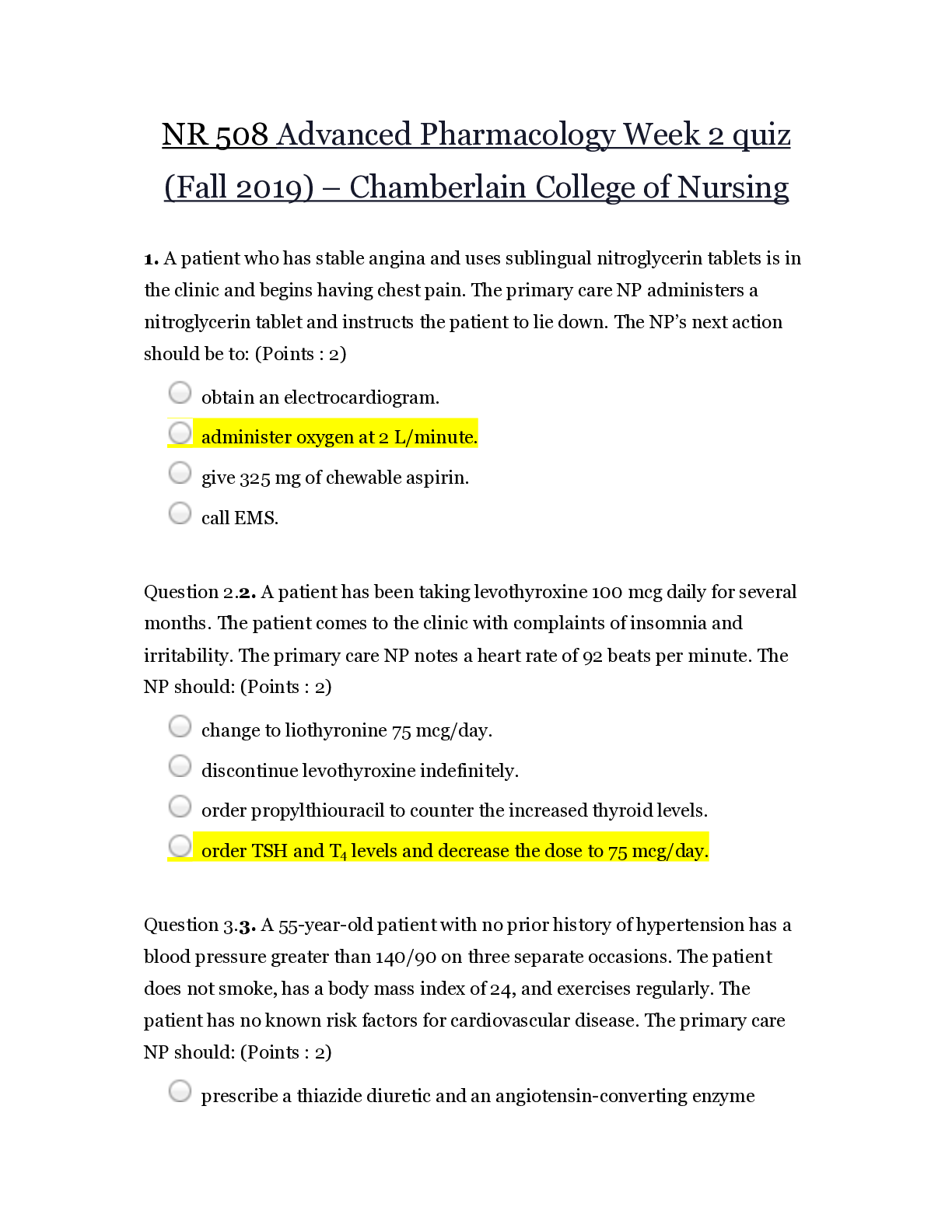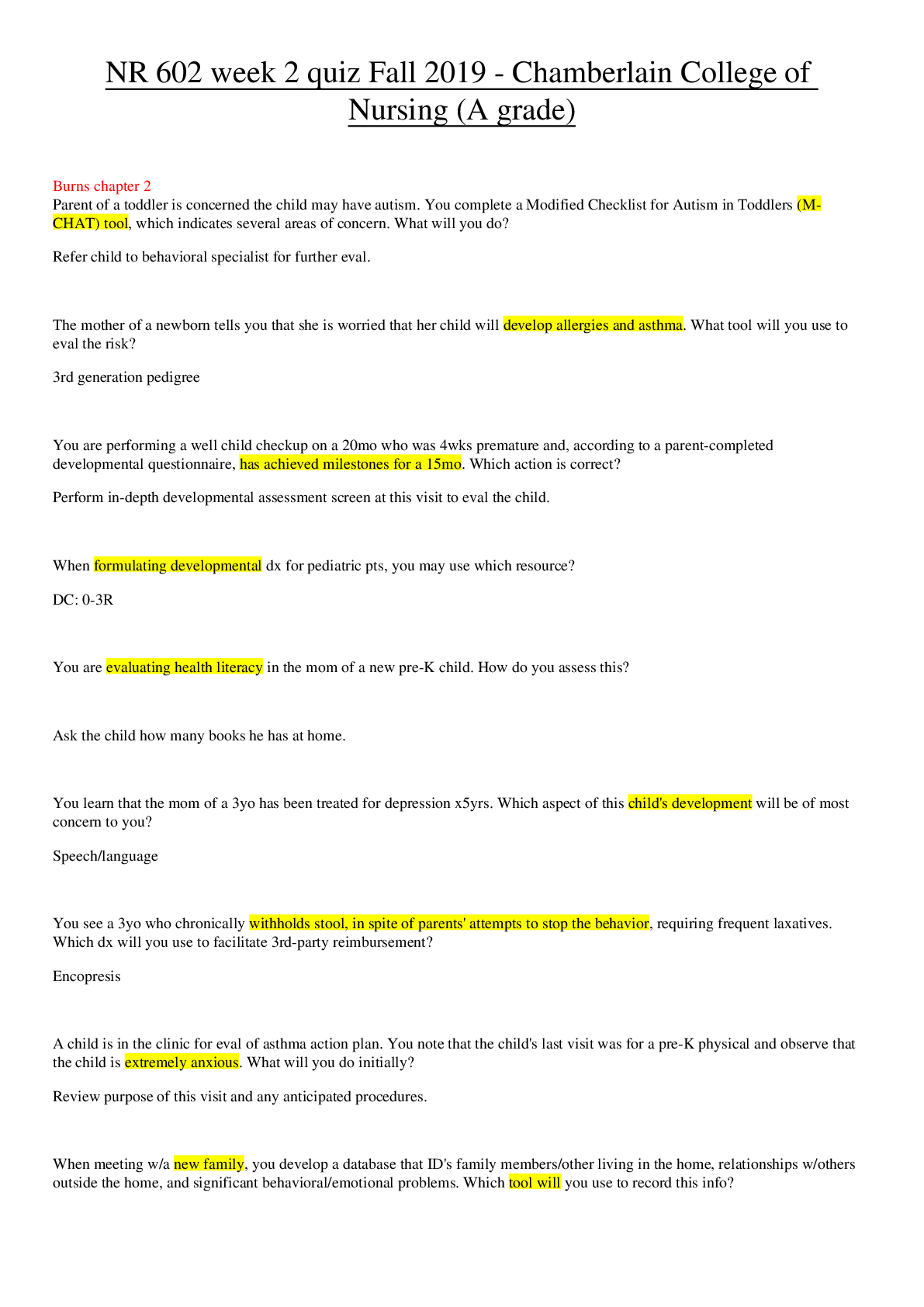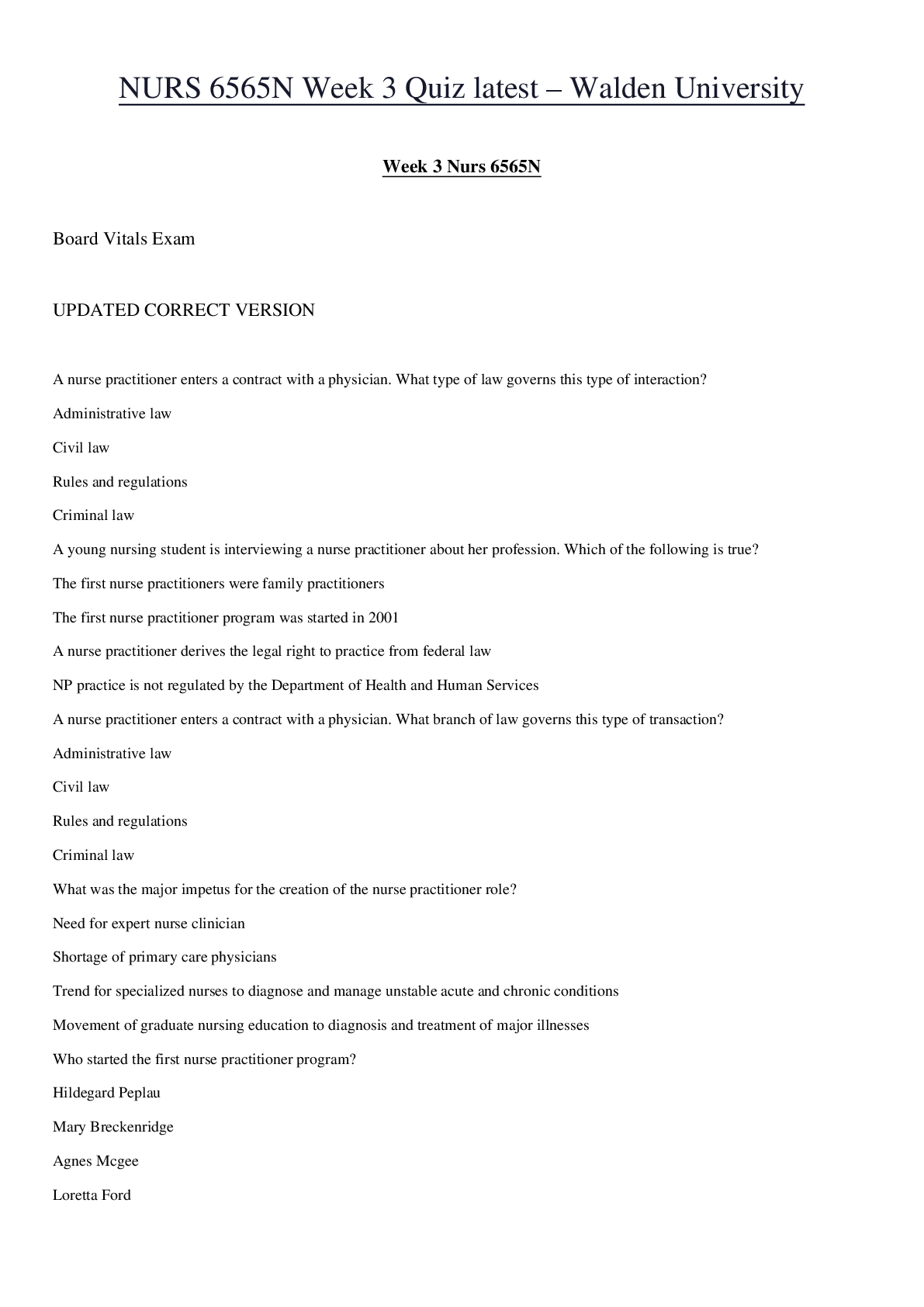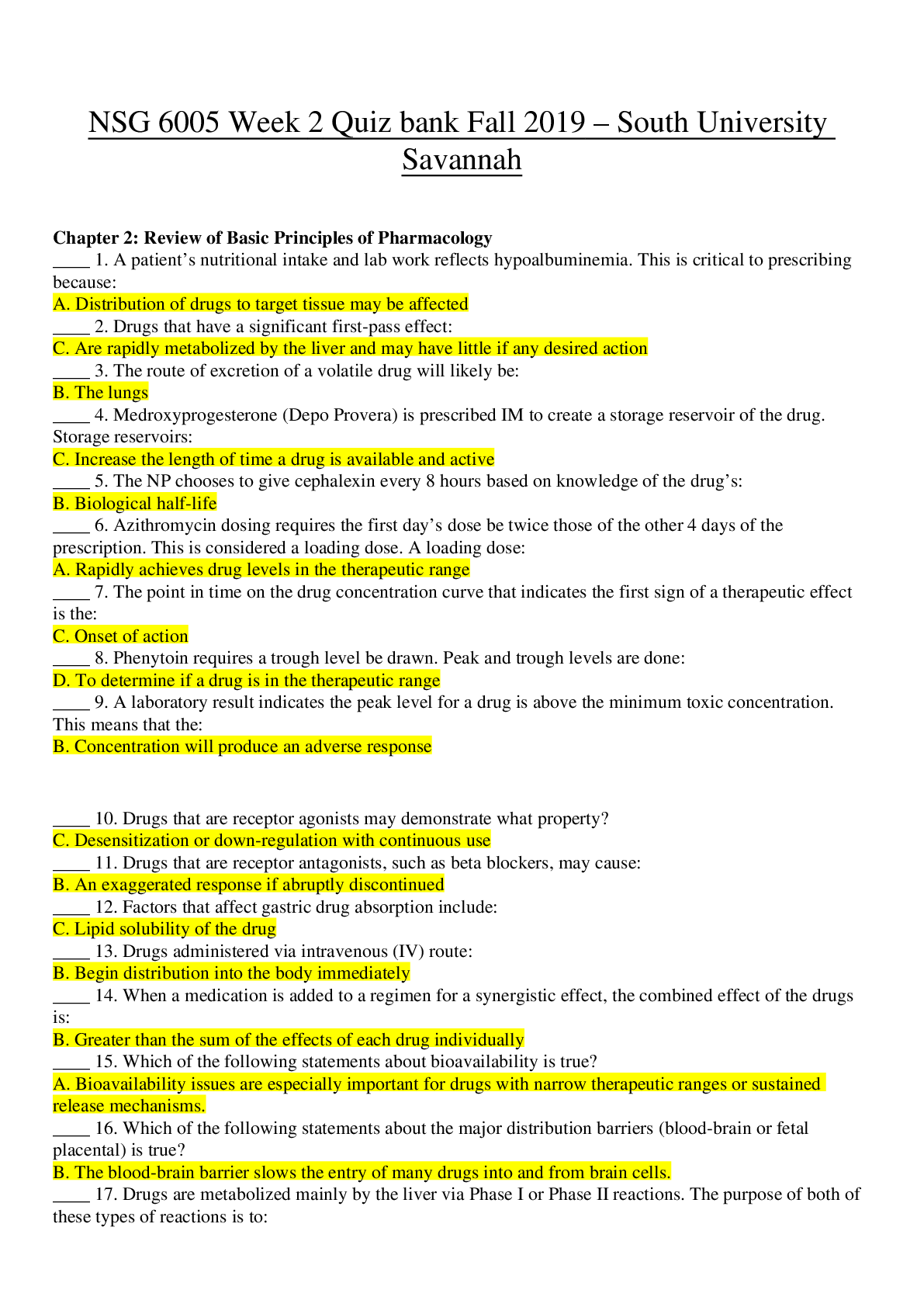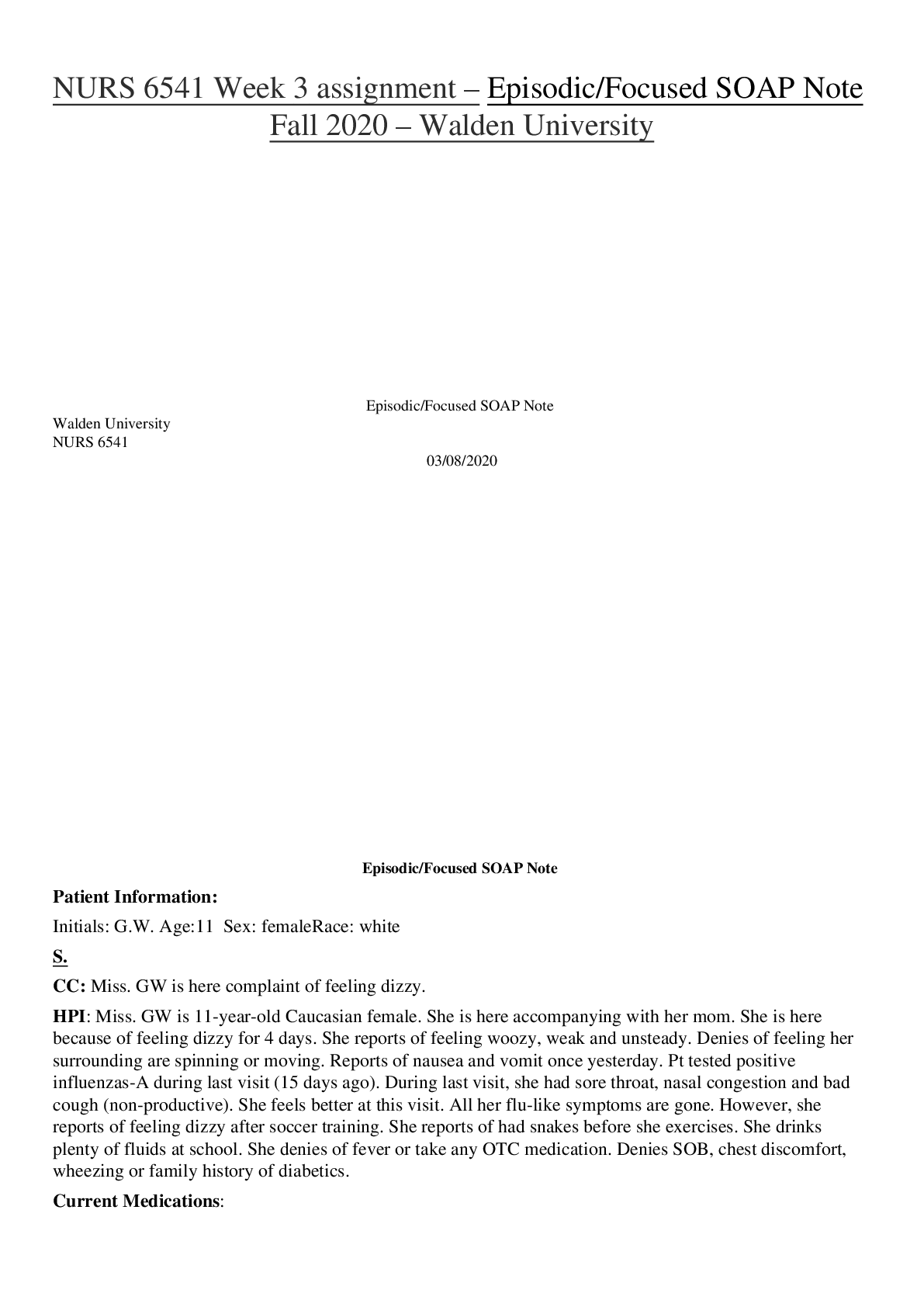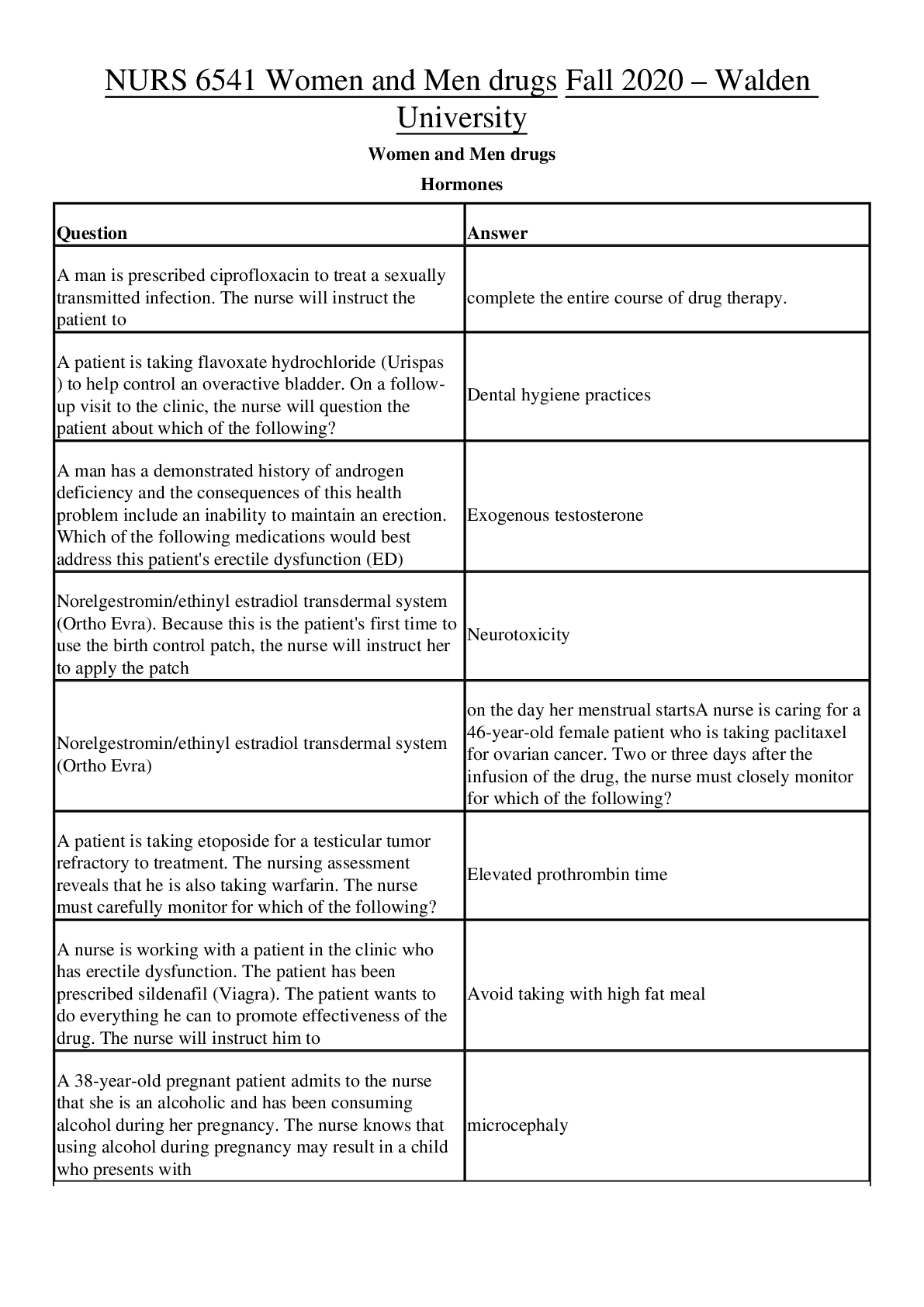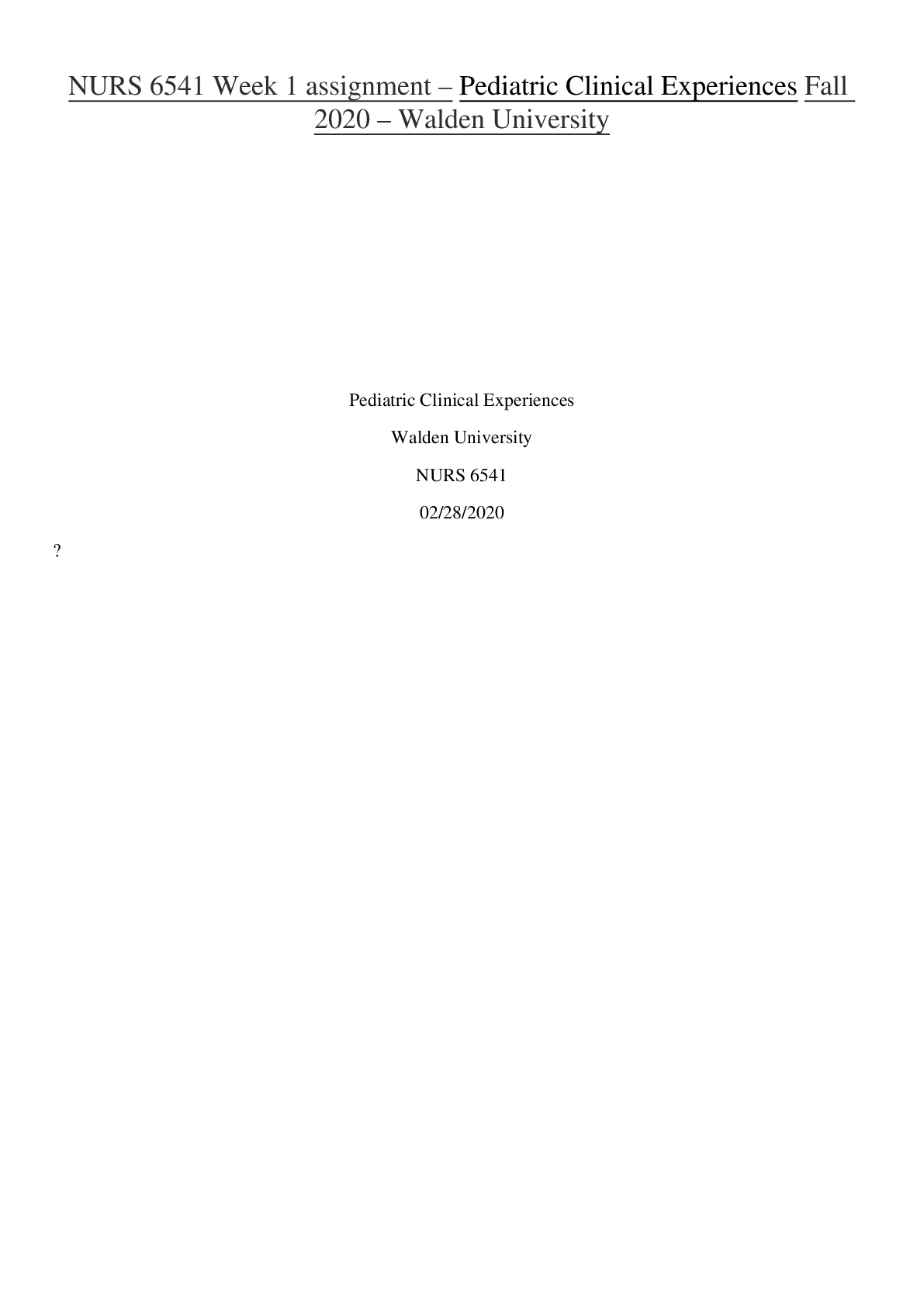*NURSING > EXAM > NURS 6565N Week 2 Quiz (board vitals) latest 2020 – Walden University / NURS 6565N Week 2 Quiz (bo (All)
NURS 6565N Week 2 Quiz (board vitals) latest 2020 – Walden University / NURS 6565N Week 2 Quiz (board vitals)
Document Content and Description Below
NURS 6565N Week 2 Quiz (board vitals) latest – Walden University Nurs 6565N Week 2 Board Vitals Exam 1) A nurse practitioner enters a contract with a physician. What type of law governs thi... s type of interaction? a. Administrative law b. Civil law c. Rules and regulations d. Criminal law 2) A young nursing student is interviewing a nurse practitioner about her profession. Which of the following is true? a. The first nurse practitioners were family practitioners b. The first nurse practitioner program was started in 2001 c. A nurse practitioner derives the legal right to practice from federal law d. NP practice is not regulated by the Department of Health and Human Services 3) A nurse practitioner enters a contract with a physician. What branch of law governs this type of transaction? a. Administrative law b. Civil law c. Rules and regulations d. Criminal law 4) What was the major impetus for the creation of the nurse practitioner role? a. Need for expert nurse clinician b. Shortage of primary care physicians c. Trend for specialized nurses to diagnose and manage unstable acute and chronic conditions d. Movement of graduate nursing education to diagnosis and treatment of major illnesses 5) Who started the first nurse practitioner program? a. Hildegard Peplau b. Mary Breckenridge c. Agnes Mcgee d. Loretta Ford 6) When the NP is paid directly by the patient’s payer who agrees to pay the NP for providing care for a specific population, this is called a: a. Contracted service system b. Second party system c. Third party system d. Fee for service system 7) Which of the following practices constitutes a barrier to safe and effective healthcare a. Input from multiple team members b. Raising an objection about quality of care to a team member with a higher level of health profession education c. Use of informatics to inform team discussion d. Inadequate disclosure of errors to patients and families 8) An established patient agrees to pay the nurse practitioner directly for providing a specific service which is a a. Fee for service system b. Third party system c. Contracted service system d. Second party system 9) A nurse practitioner is seeing patients in a clinic. Which of the following requirements must the NP meet to satisfy Medicare’s coverage requirements a. The services must be provided under direct supervision b. The services must be provided subject to restrictions and supervision requirements of the state c. The services must be billed through a clinic that is directed by a physician or through a hospital or health agency d. Services must be provided in a federally qualified health center (FQHC) or rural health clinic (RHC) 10) When advocating for the profession of nursing, a nurse practitioner knows that responsibility for interrupting scope of practice parameters rests with which of the following a. The state medical licensure board b. The state board of nursing c. The state legislature d. The individual NP 11) The NP knows that his or her legal right to practice is derived from a. The laws of the state where he or she practices b. The nurse practice act of the state where he or she practices c. The federal medicare laws d. The board of nursing in the state where he or she practices 12) Your nursing license may be in jeopardy if a. You appropriately delegate medication administration to a trusted RN employee who administers a fatal dose b. You delegate client assessment tasks to an LPN who has been floated to your outpatient clinic for the day c. You provide nursing care services consistent with established standards of practice in your jurisdiction d. The medical assistant in your supervising physician’s office exceeds the scope of her authority but you take prompt action to correct the problem 13) The NP delegates a task to an unlicensed person. The person(s) responsible for outcomes in this case is a. The NP b. The unlicensed person who performs the task c. Both the NP and the unlicensed person d. The physician responsible for the NP 14) According to the institute of medicine which of the following defines healthcare performance a. How things are done now b. The efficiency and outcome of care by an organization including patient satisfaction c. Healthcare delivery system inputs d. Activities within a healthcare organization 15) Which of the following is true of advanced practice registered nurses a. Half of the states in the US license Nurse practitioners b. Designated titles by which nurse practitioners are known vary by state c. Only two states currently require NPs be certified by a national certifying organization for nurses d. An APRN employed by the VA must have separate licenses for each state in which she works in a VA facility 16) Nonmaleficence is a principal ethic in nursing is best defined as a. Compassion; a desire to good b. Dedication, fairness, honesty, advocacy, and commitment to patients. It involves an agreement to keep promises and commitments based on the virtue of caring c. Avoidance of harm d. Equal and fair distribution of resources based on impartial analysis of benefits 17) Which of the following characterizes the professional role of a nurse practitioner a. Nurse practitioners scope of practice does not reflect practice privileges allowed by certification b. Perspective authority is issued with NP certification c. Nurse practitioners can admit patients to hospitals in all states d. The scope of practice of a nurse practitioner reflects a full range of practice privileges allowed by certification and license 18) The health insurance portability and accountability act a. Addresses the rights of the individual as they relate to privacy of health information b. Requires national standards for electronic health records c. Regulates transfer of health information needed for continuity of care d. All the above 19) Which of the following scenarios is generally considered unethical a. Having notes on a therapy patient, keeping them out of the medical record and denying the patient access to them. b. Charging patients a fee for missed appointments c. Hiring a patient to do lawn maintenance d. Declining a box of chocolates from a patient 20) Which of the following is true of the title “nurse practitioner?” a. It can only be used by a nurse practitioner in active practice b. It indicates the patient has been certified by a non-governmental entity c. It is illegal for any person to use the title without a valid license d. It can be used by anyone who has met the educational requirements [Show More]
Last updated: 1 year ago
Preview 1 out of 5 pages
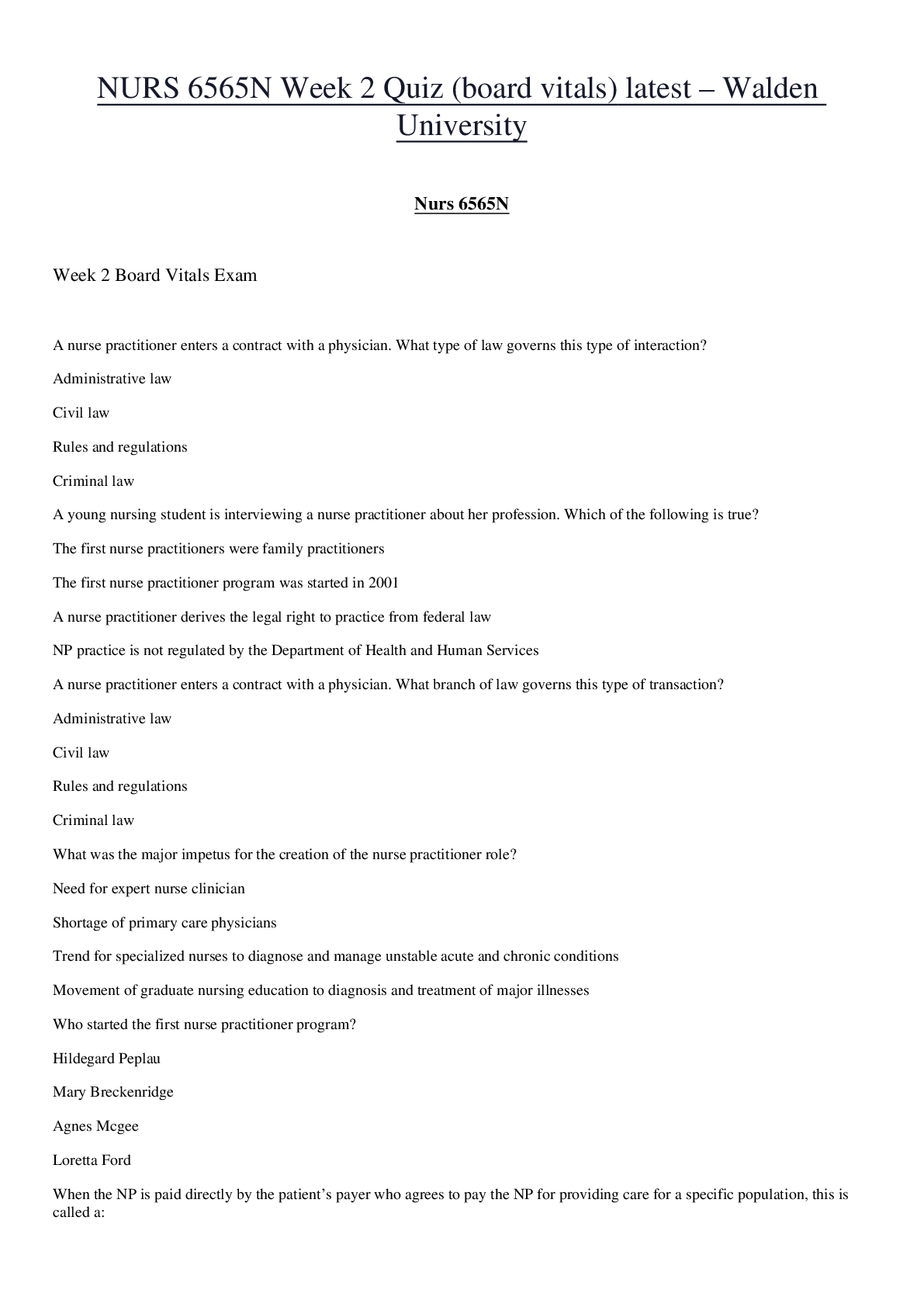
Reviews( 0 )
Document information
Connected school, study & course
About the document
Uploaded On
May 29, 2020
Number of pages
5
Written in
Additional information
This document has been written for:
Uploaded
May 29, 2020
Downloads
1
Views
56

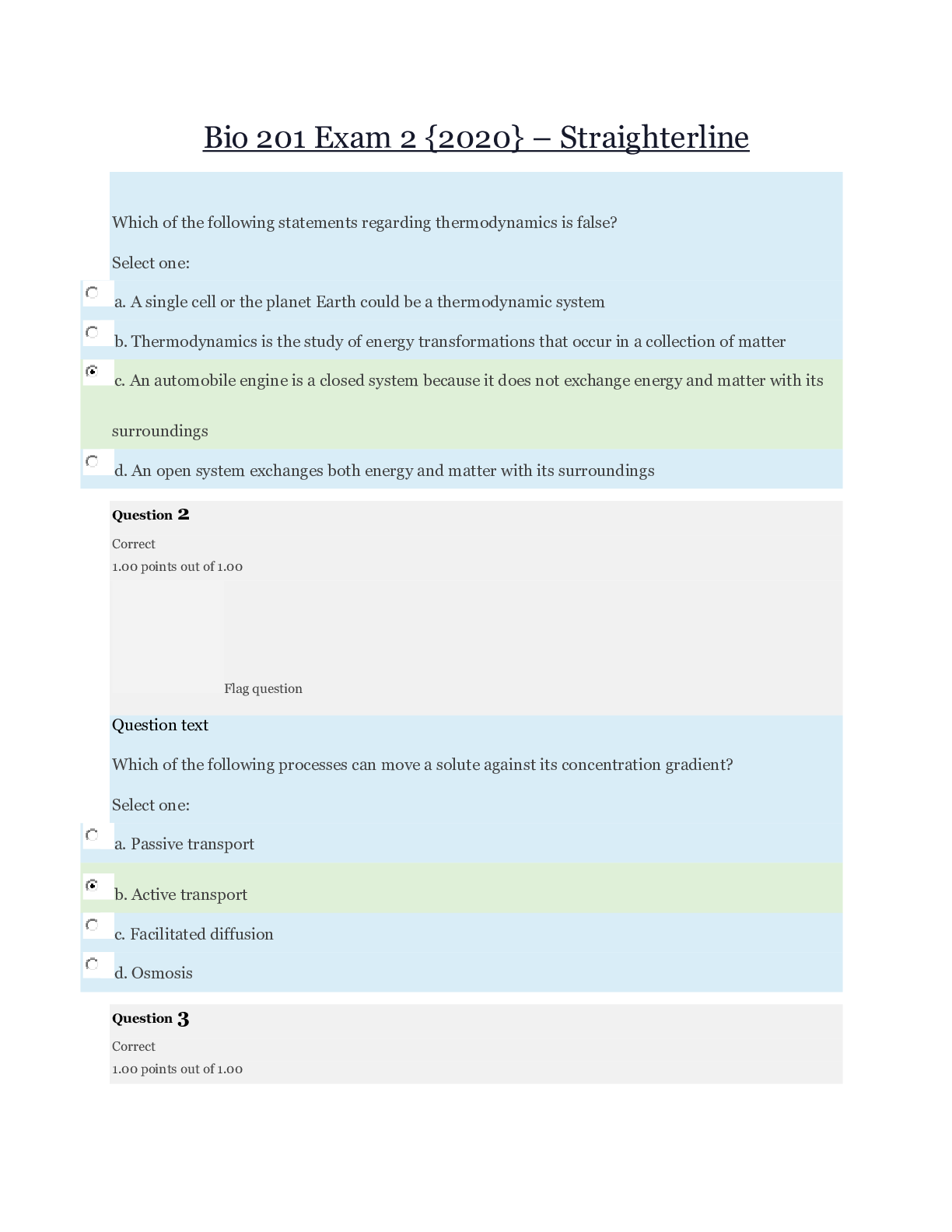
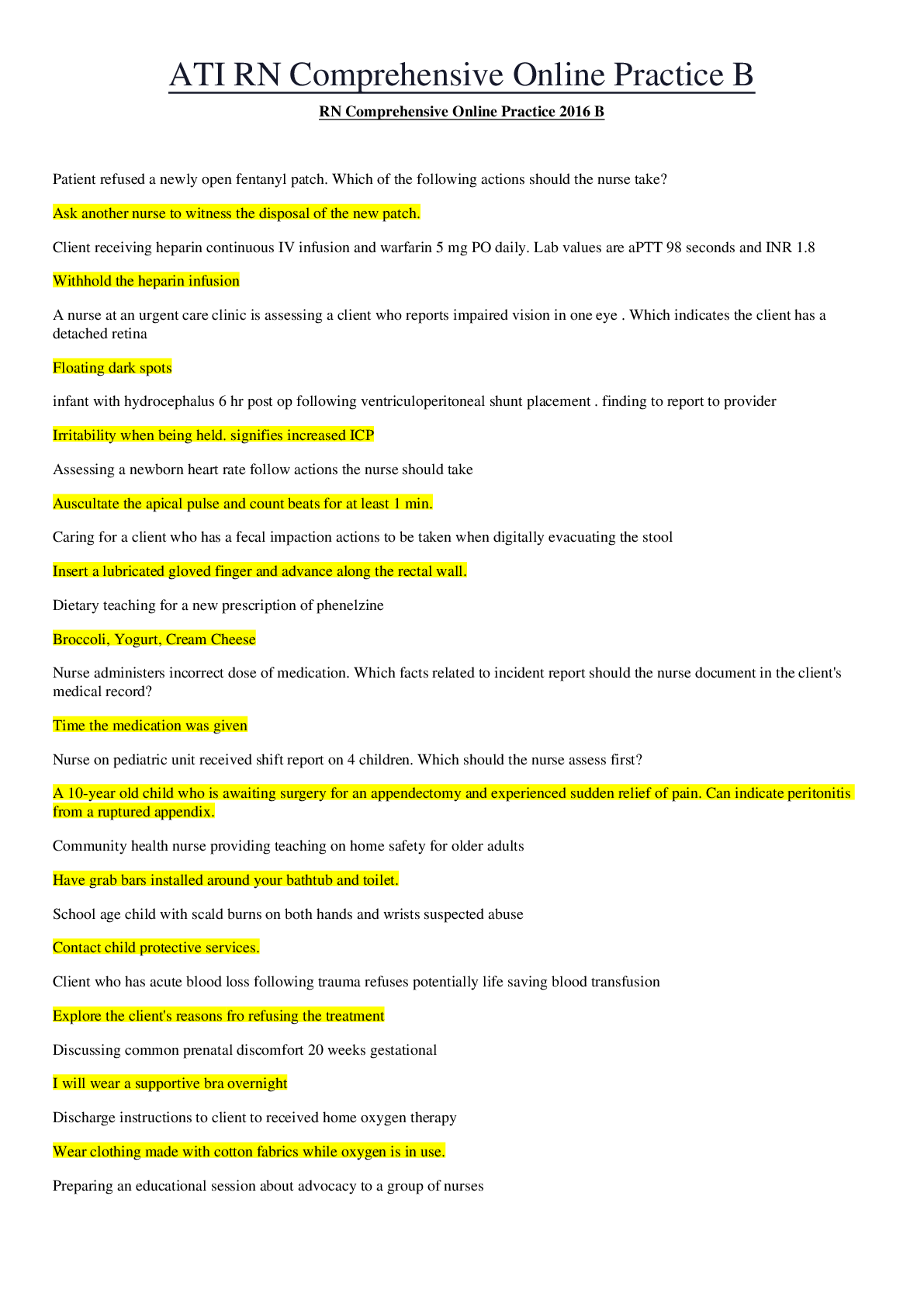
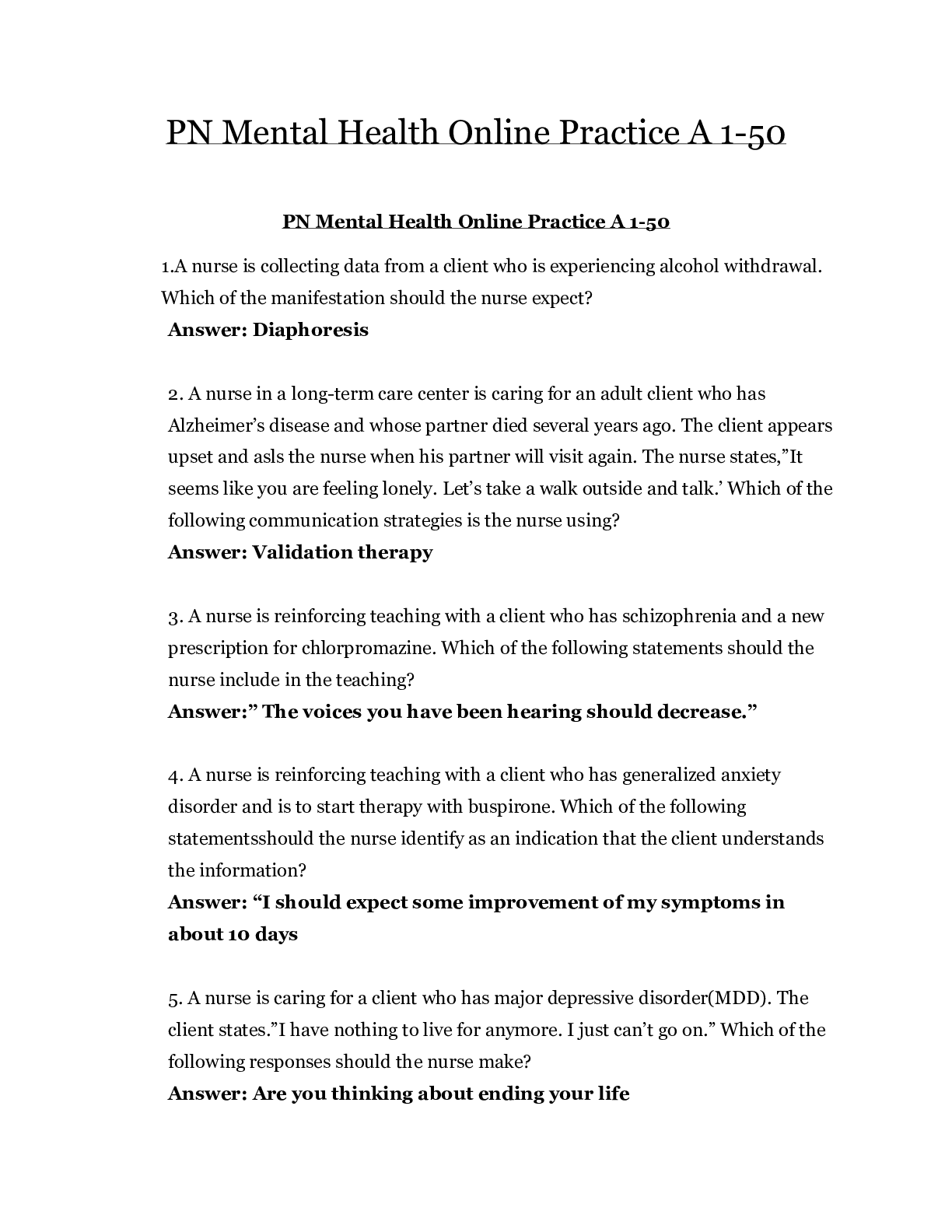
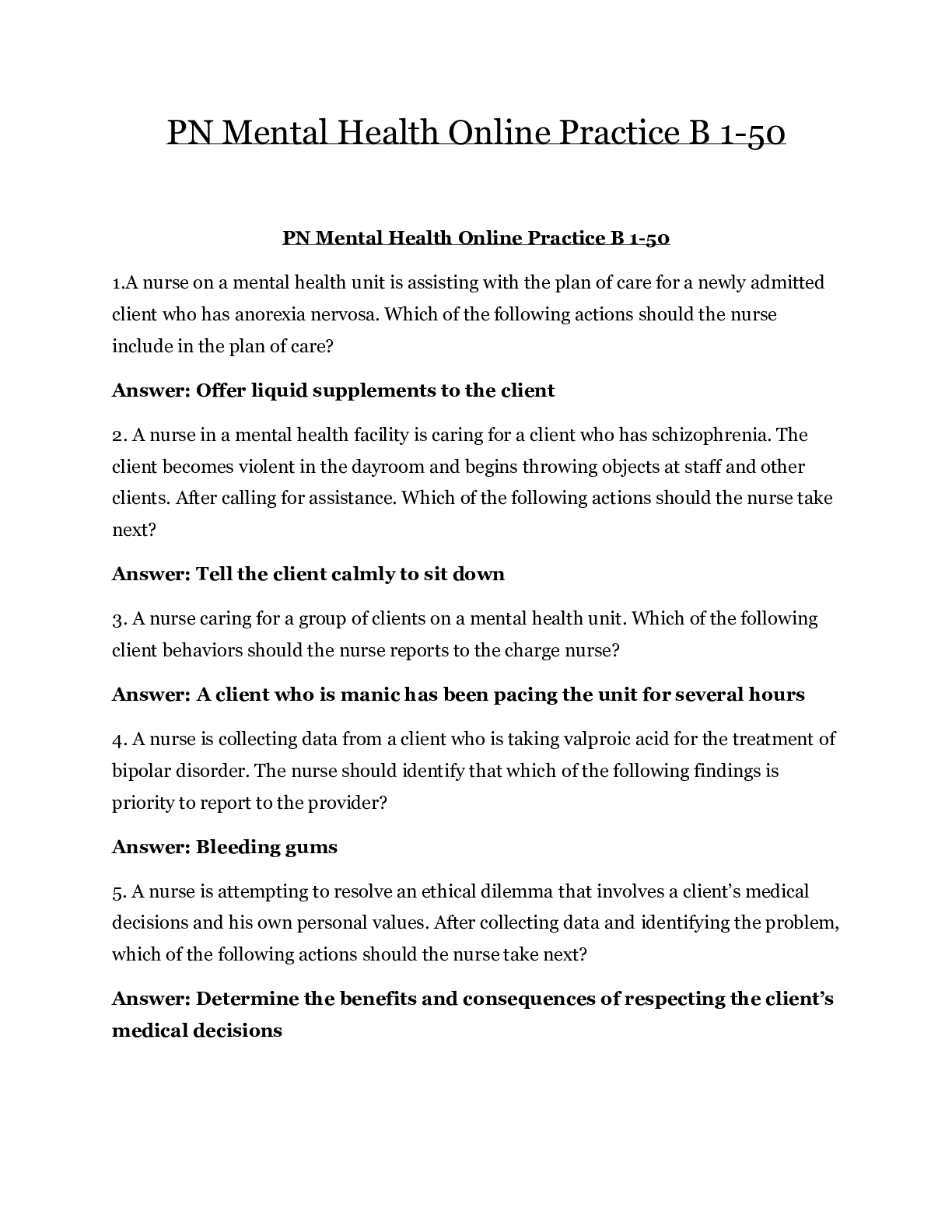
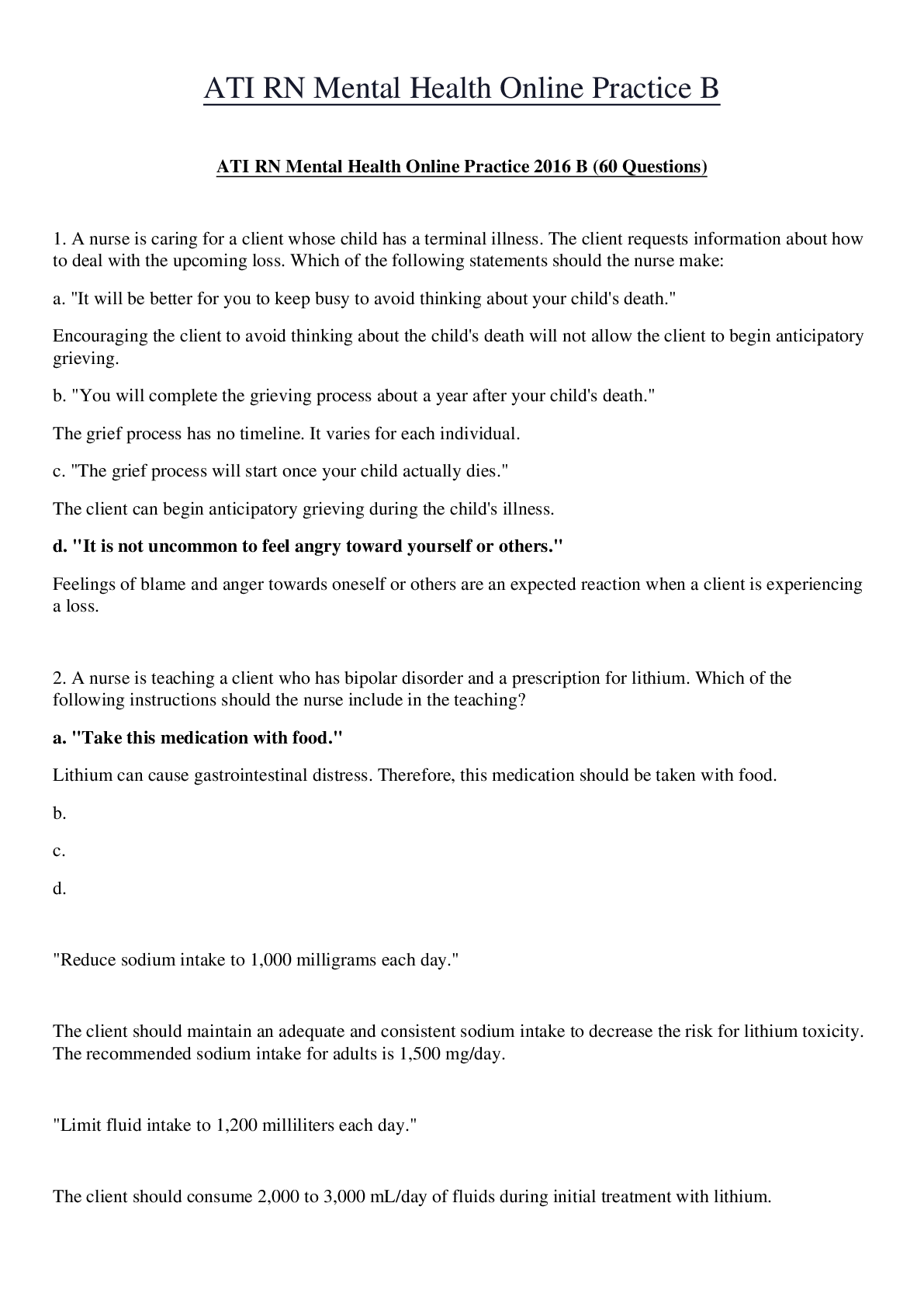
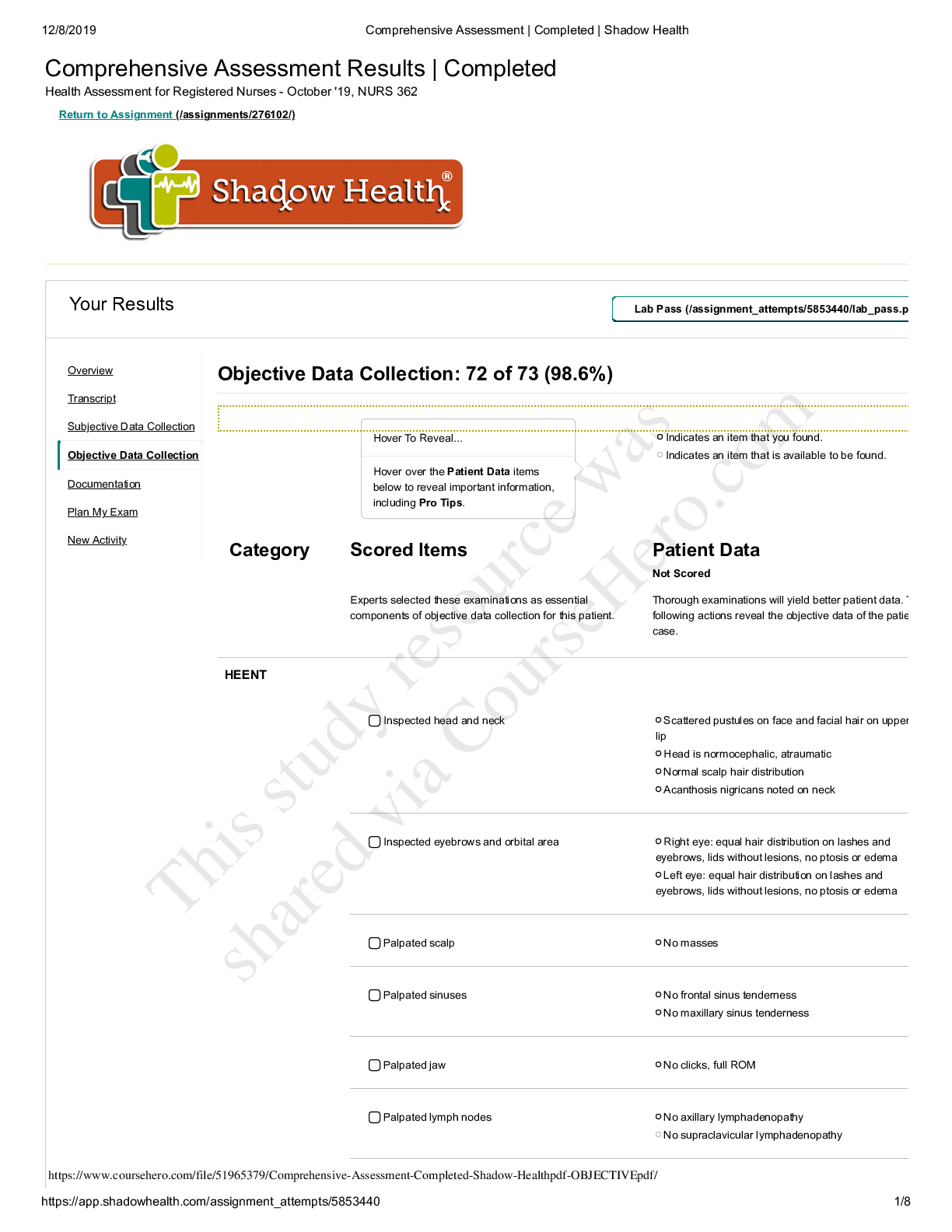
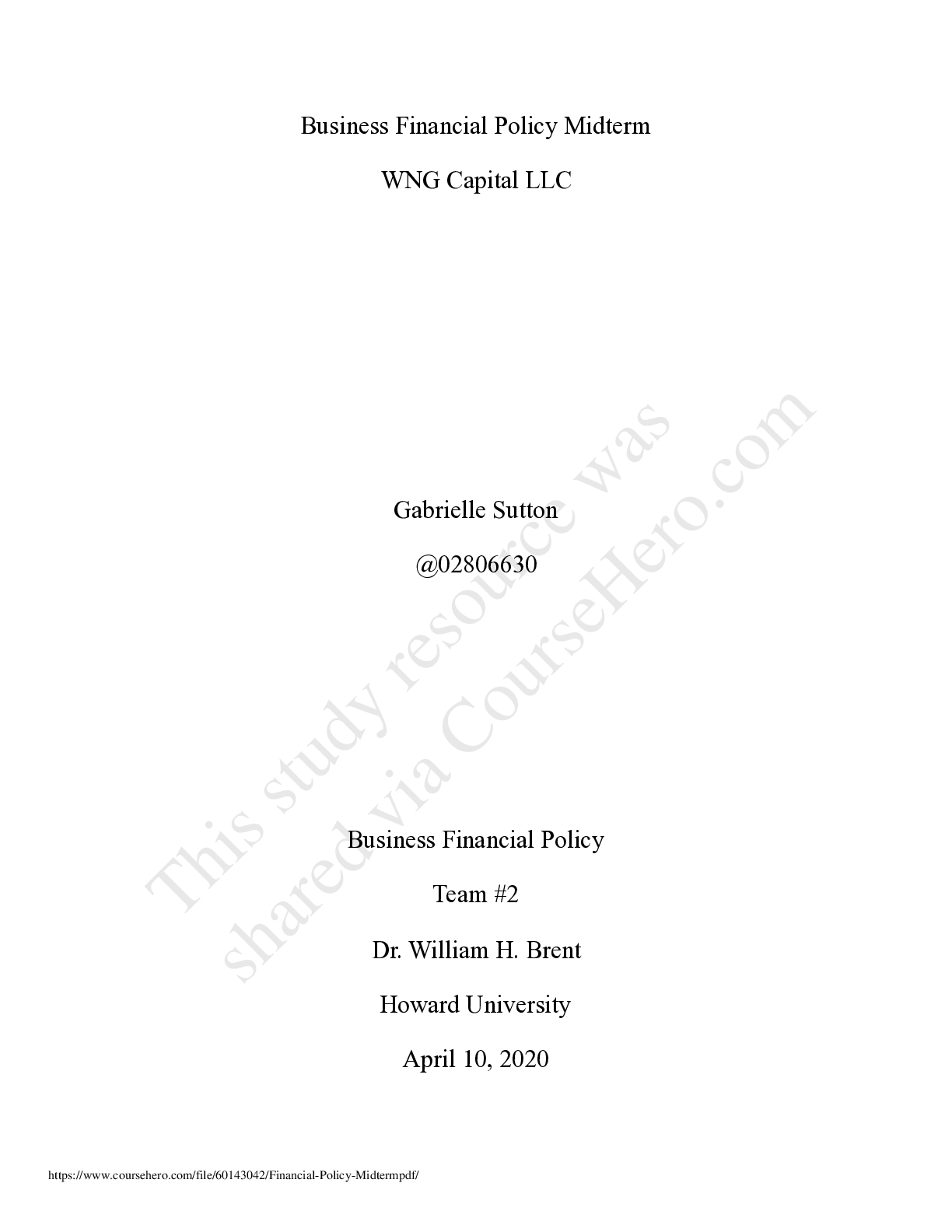
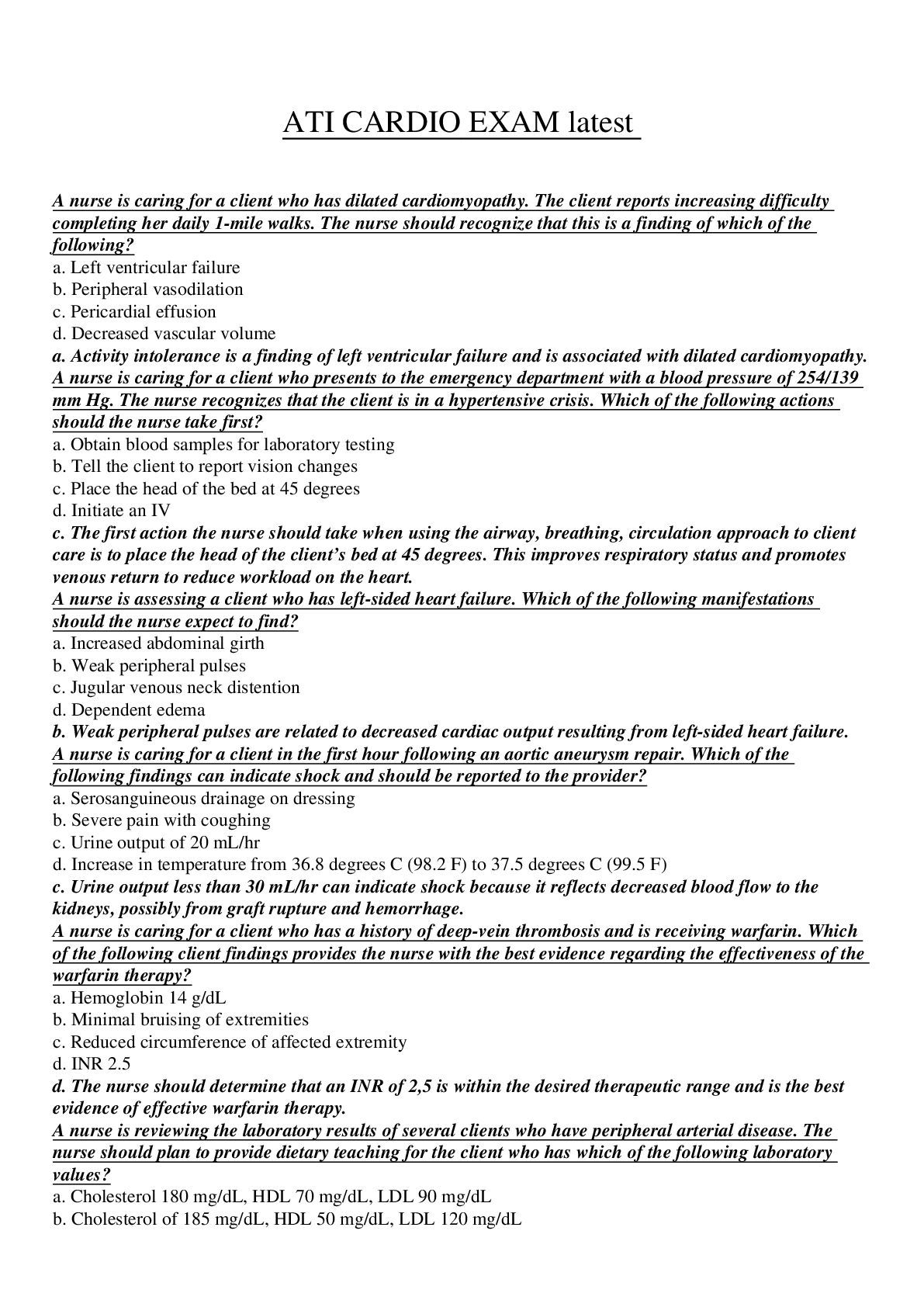
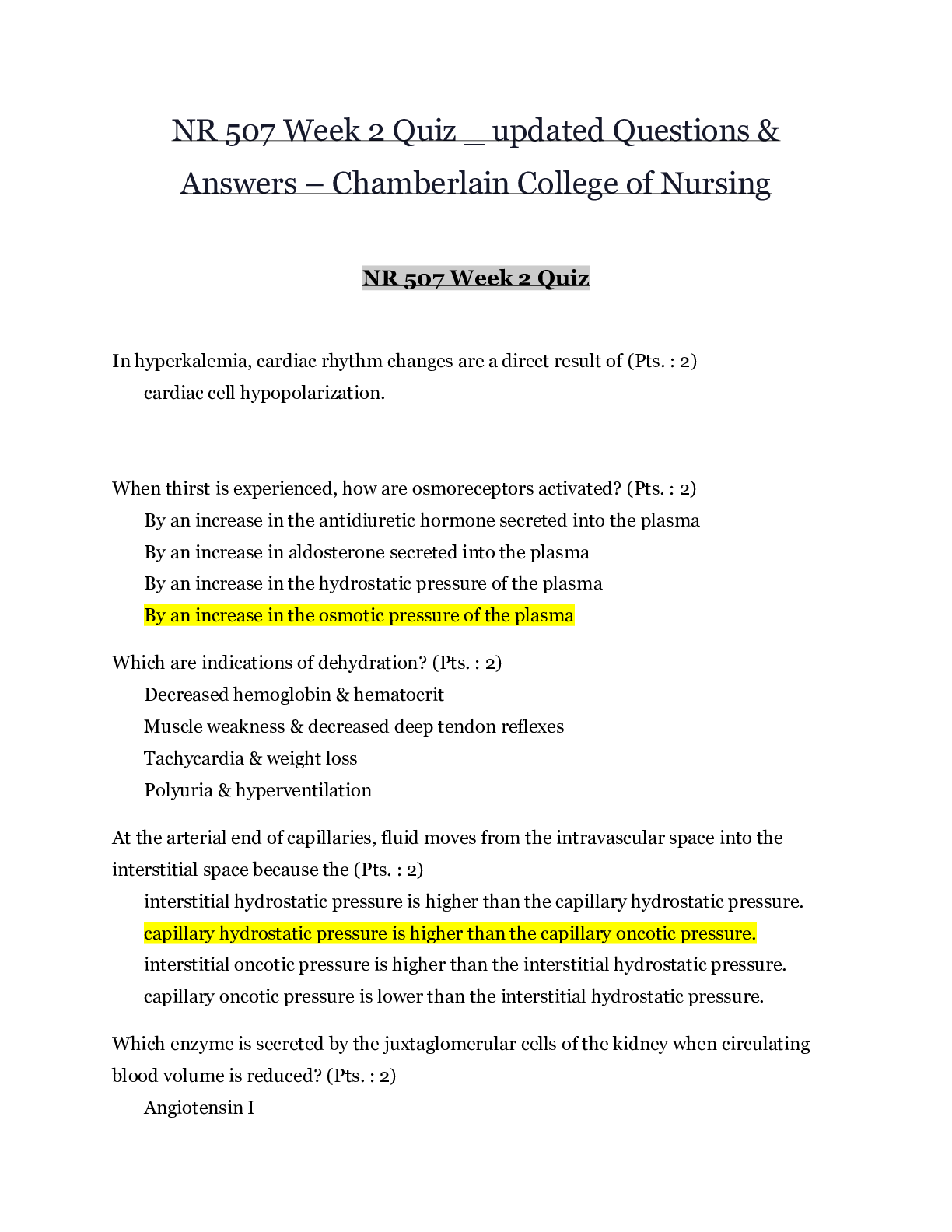
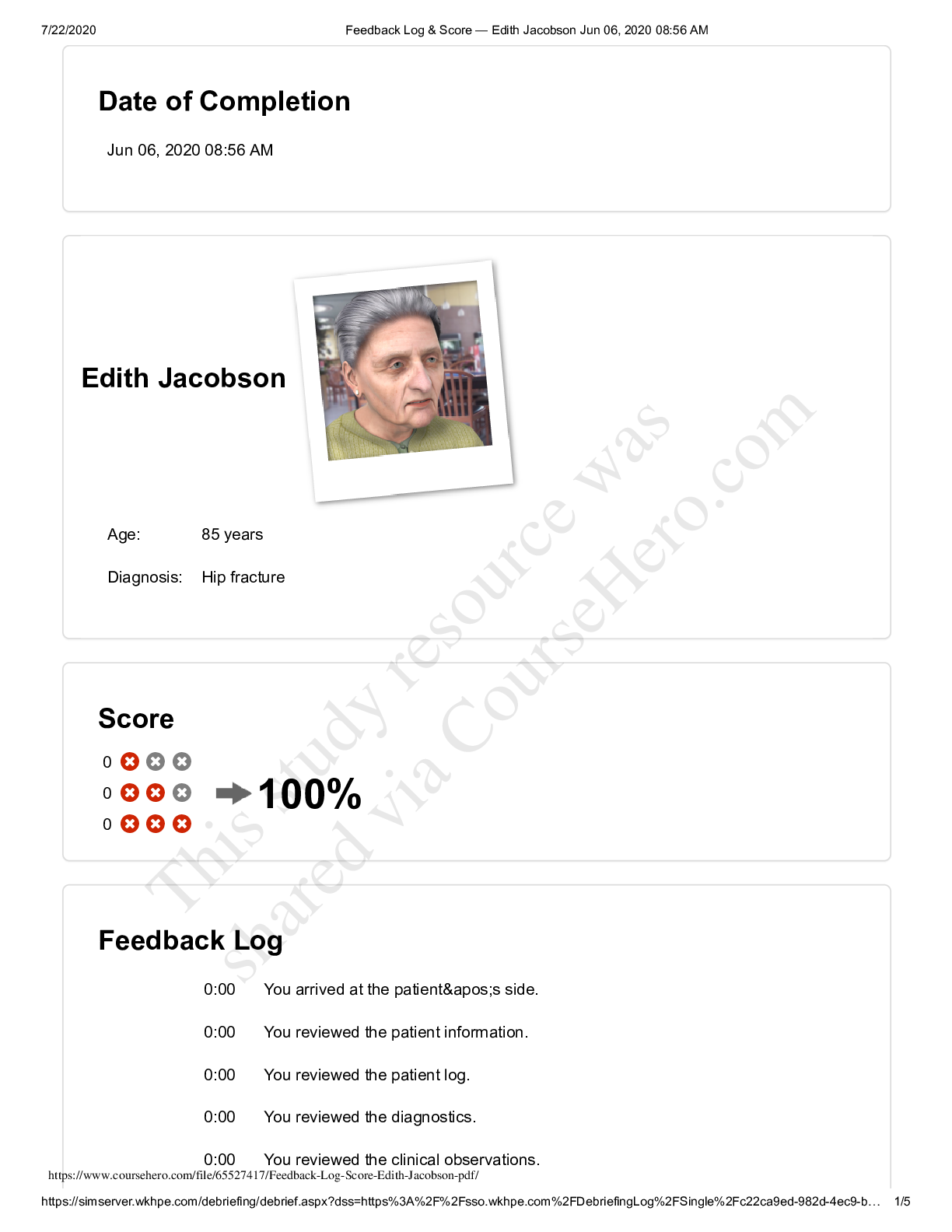
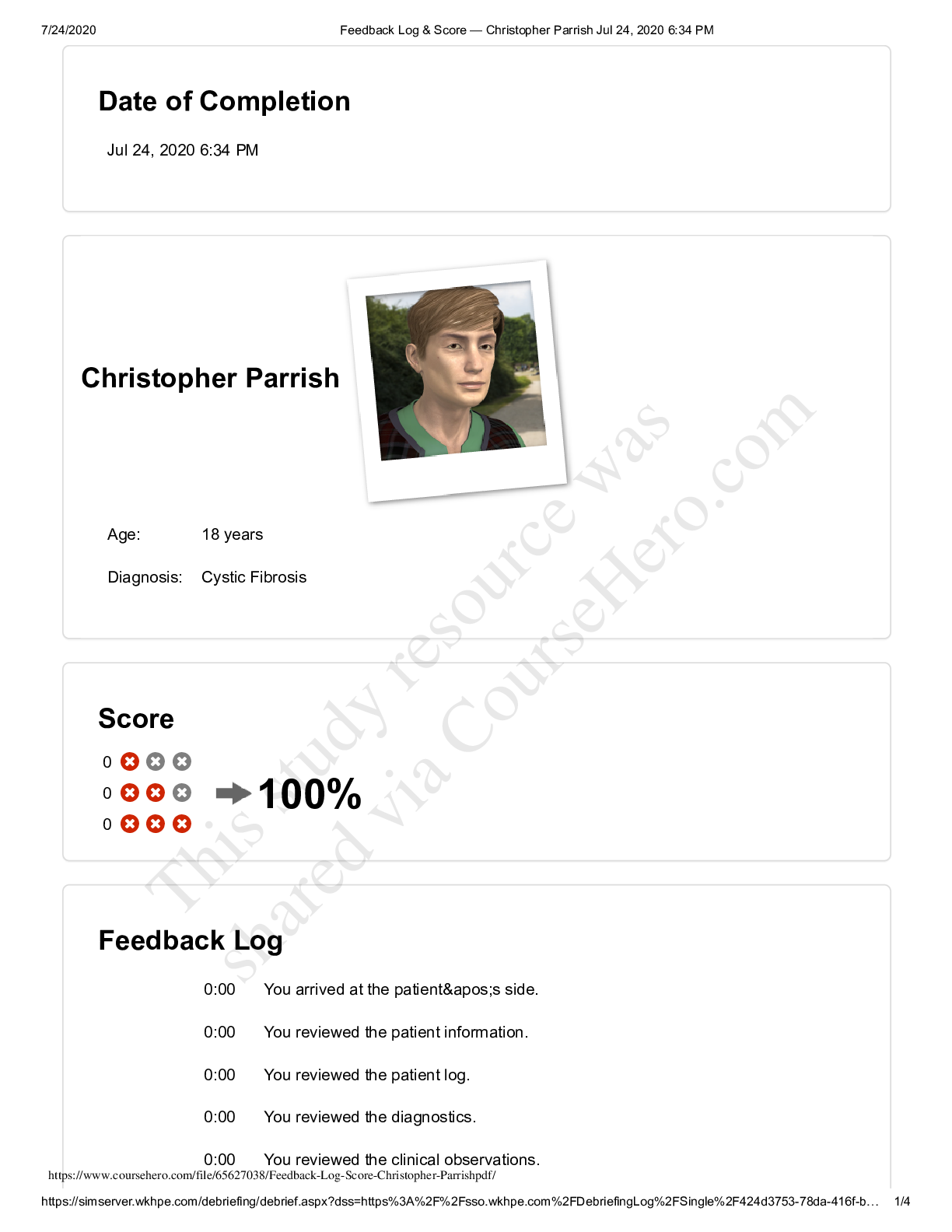
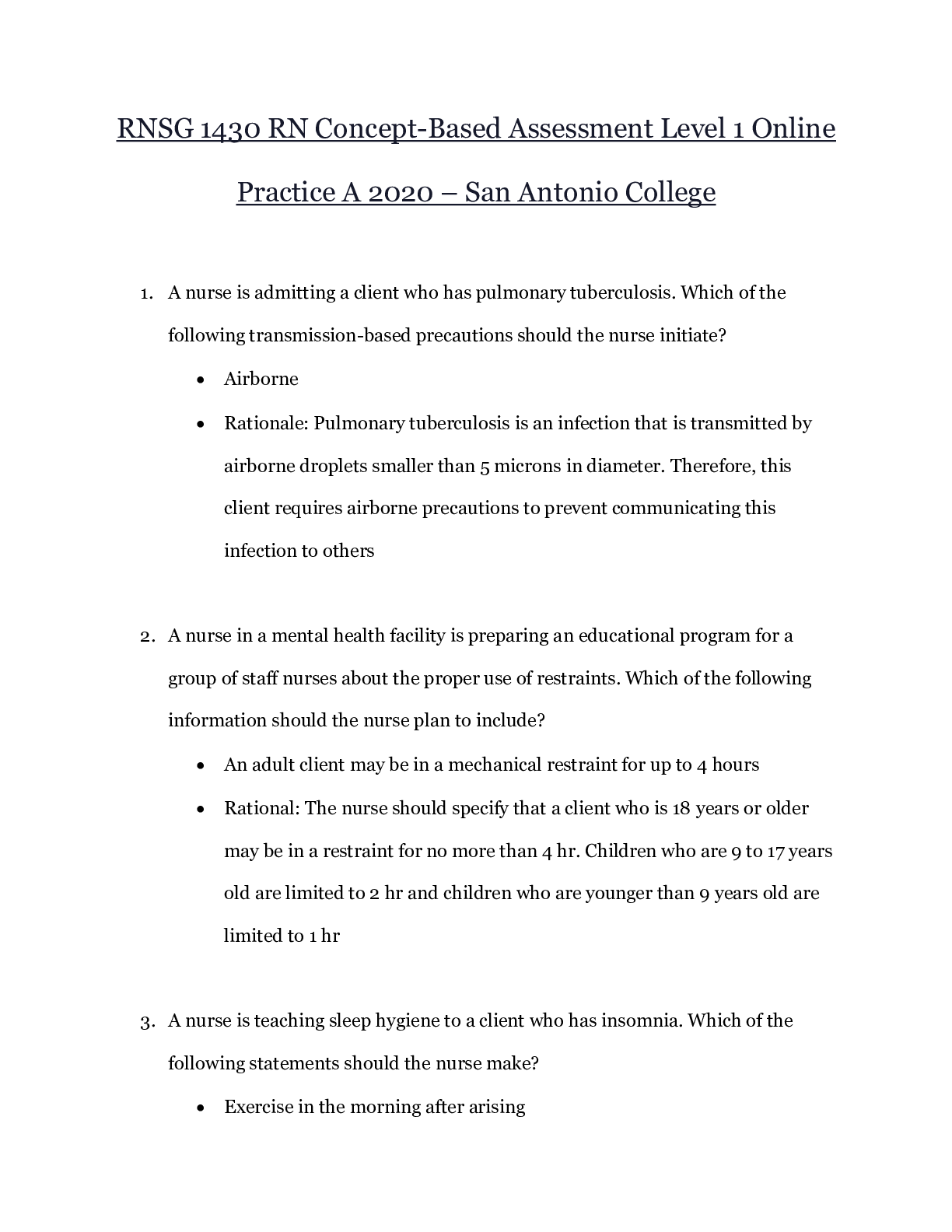
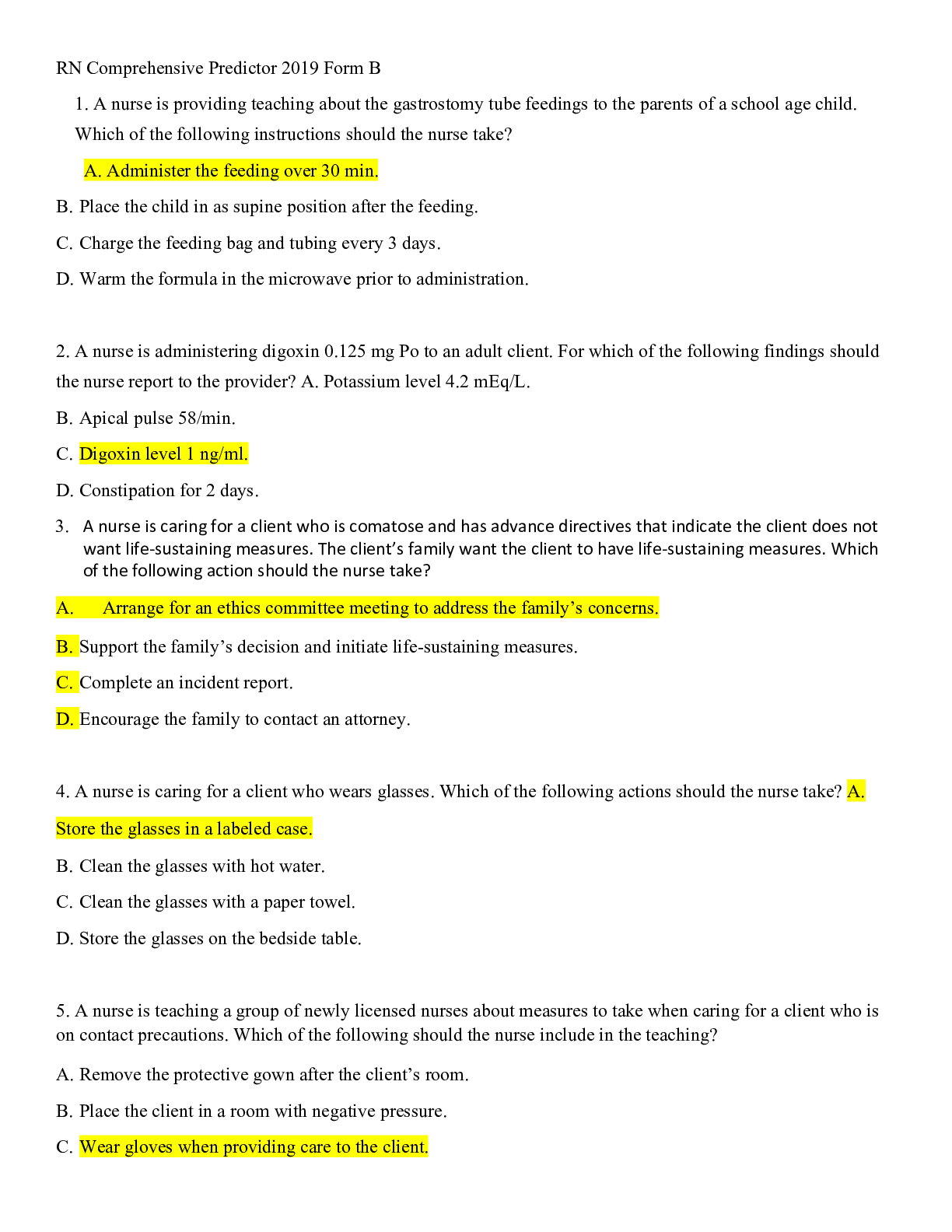

 – CHAMBERLAIN COLLEGE OF NURSING.png)
